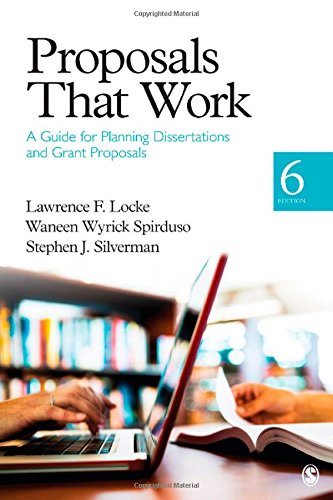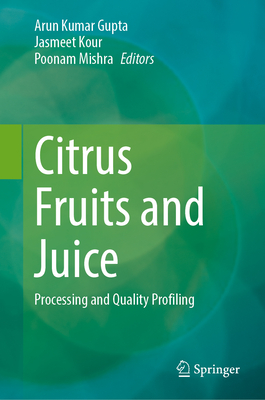图书简介
This book constitutes the refereed proceedings of the 4th International Conference on HCI in Mobility, Transport, and Automotive Systems, MobiTAS 2022, held as part of the 23rd International Conference, HCI International 2022, which was held virtually in June/July 2022. The total of 1271 papers and 275 posters included in the HCII 2022 proceedings was carefully reviewed and selected from 5487 submissions.The MobiTAS 2022 proceedings were organized in the following topical sections: Designing Interactions in the Mobility, Transport, and Automotive Context; Human-Centered Design of Automotive Systems; Driver Information and Assistance Systems; Studies on Automated Driving; and Micro-mobility and Urban Mobility.
Designing Interactions in the Mobility, Transport, and Automotive Context.- How to Support Rapid Prototyping of Virtual Content for Automotive AR Head-up Displays.- Creating Geopositioned 3D Areas of Interest from Fleet Gaze Data.- Exploring New Depths: How Could Passengers Interact With Future In-Car Holographic 3D Displays.- Establishment and Validation of Flight Crew Training Cost Model.- Omniverse-OpenDS: Enabling Agile Developments for Complex Driving Scenarios via Reconfigurable Abstractions.- Oneiros-OpenDS: An Interactive and Extensible Toolkit for Agile and Automated Developments of Complicated Driving Scenes.- Towards Scenario-based and Question-driven Explanations in Autonomous Vehicles.- Human-Centered Design of Automotive Systems.- Investigate the In-Vehicle Healthcare System Design Opportunities: Findings from a Co-Design Study.- User-Centered Development of a Route Planning App for Fragmented Automated Drives.- Gender Preference Differences in Color Temperature Associated with LED Light Sources in the Autopilot Cabin.- A Deep Dive into the China’s Gen Z: How They Use and What They Expect for Their Cars.- Effect of Age on Driving Behavior and a Neurophysiological Interpretation.- The impact of Directional Road Signs Combinations and Language Unfamiliarity on Driving Behavior.- Towards a Customizable Usage Requirements Cycle.- Understanding Drivers’ Physiological Responses in Different Road Conditions.- Co-Designing the Next Generation Automatic Driving Vehicle HMI Interface with Lead-Users.- Driver Information and Assistance Systems.- Driving Experiment System Using HMDs to Measure Drivers’ Proficiency and Difficulty of Various Road Conditions.- Inspection of In-Vehicle Touchscreen Infotainment Display for Different Screen Locations, Menu Types, and Positions.-Ergonomics Evaluation of in-Vehicle HMI based on Meander of Finger Trajectory.- Face2Statistics: User-Friendly, Low-Cost and Effective Alternative to In-Vehicle Sensors/Monitors for Drivers.- User-centered Information Architecture of Vehicle AR-HUD System.- Emotional Design for In-vehicle Infotainment Systems: An Exploratory Co-design Study.- Studies on Automated Driving.- Watch Out Car, He’s Drunk! How Passengers of Vehicles Perceive Risky Crossing Situations based on Situational Parameters.- Impacts of Autonomous Vehicle Driving Logics on Heterogenous Traffic and Evaluating Transport Interventions with Microsimulation Experiments.- HAVIT: A Virtual Reality Testbed to Support Human-Autonomous Vehicle Interaction Studies.- Visualization Analysis on Literature Maps of Chinese Intelligent Vehicle Design based on CiteSpace.- Social Acceptability of Autonomous Vehicles: Unveiling Correlation of Passenger Trust and Emotional Response.- Beyond SAE J3016: New Design Spaces for Human-Centered Driving Automation.- Study of the Hazard Perception Model for Automated Driving Systems.- A Preliminary Evaluation of Driver’s Workload in Partially Automated Vehicles.- Testing Approach of HMI Designs for Vehicles with Automated Driving Systems: a Usability Test Case based on the Driving Simulator.- Micro-mobility and Urban Mobility.- Towards a Framework for Detecting Temporary Obstacles and their Impact on Mobility for Diversely Disabled Users.- Assistive Systems for Special Mobility Needs in the Coastal Smart City.- Exploring Private Scooter Owners’ Willingness to Introduce their Own Scooter into Vehicle Sharing Services.- Temporal Travel Demand Analysis of Irregular Bike-Sharing Users.- Analysis of the Tasks of Control Room Operators within Chinese Motorway Control Rooms.- Gender Inclusiveness in Public Transportation: Social Media Analysis.- Robust Linear Regression-Based GIS Technique for Modeling the Processing Time at Tourism Destinations.- Enabling Knowledge Extraction on Bike Sharing Systems throughout Open Data.- Perception of Inc
Trade Policy 买家须知
- 关于产品:
- ● 正版保障:本网站隶属于中国国际图书贸易集团公司,确保所有图书都是100%正版。
- ● 环保纸张:进口图书大多使用的都是环保轻型张,颜色偏黄,重量比较轻。
- ● 毛边版:即书翻页的地方,故意做成了参差不齐的样子,一般为精装版,更具收藏价值。
关于退换货:- 由于预订产品的特殊性,采购订单正式发订后,买方不得无故取消全部或部分产品的订购。
- 由于进口图书的特殊性,发生以下情况的,请直接拒收货物,由快递返回:
- ● 外包装破损/发错货/少发货/图书外观破损/图书配件不全(例如:光盘等)
并请在工作日通过电话400-008-1110联系我们。
- 签收后,如发生以下情况,请在签收后的5个工作日内联系客服办理退换货:
- ● 缺页/错页/错印/脱线
关于发货时间:- 一般情况下:
- ●【现货】 下单后48小时内由北京(库房)发出快递。
- ●【预订】【预售】下单后国外发货,到货时间预计5-8周左右,店铺默认中通快递,如需顺丰快递邮费到付。
- ● 需要开具发票的客户,发货时间可能在上述基础上再延后1-2个工作日(紧急发票需求,请联系010-68433105/3213);
- ● 如遇其他特殊原因,对发货时间有影响的,我们会第一时间在网站公告,敬请留意。
关于到货时间:- 由于进口图书入境入库后,都是委托第三方快递发货,所以我们只能保证在规定时间内发出,但无法为您保证确切的到货时间。
- ● 主要城市一般2-4天
- ● 偏远地区一般4-7天
关于接听咨询电话的时间:- 010-68433105/3213正常接听咨询电话的时间为:周一至周五上午8:30~下午5:00,周六、日及法定节假日休息,将无法接听来电,敬请谅解。
- 其它时间您也可以通过邮件联系我们:customer@readgo.cn,工作日会优先处理。
关于快递:- ● 已付款订单:主要由中通、宅急送负责派送,订单进度查询请拨打010-68433105/3213。
本书暂无推荐
本书暂无推荐















